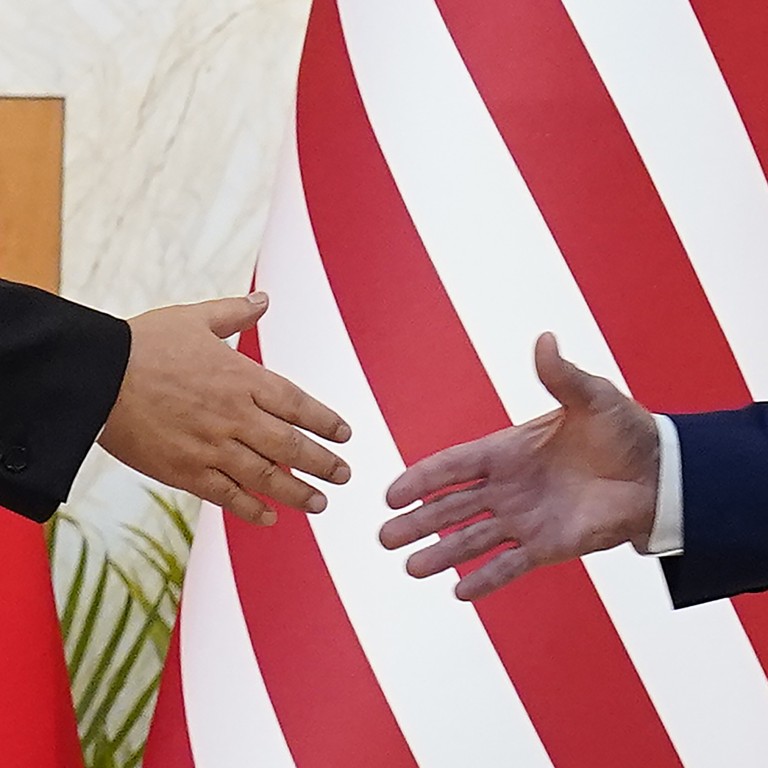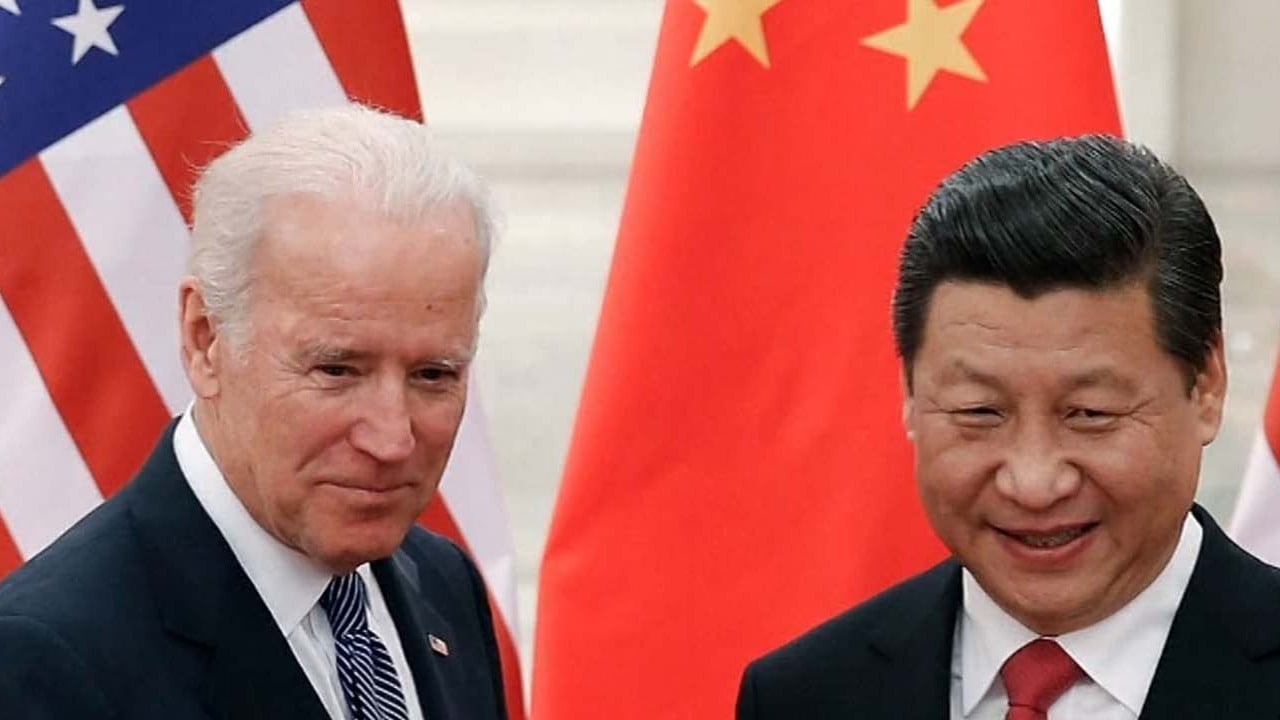
‘Cold but peaceful’: Chinese experts predict future of US-China relations
- After the US midterms, some analysts say bilateral relations between the two rivals will remain turbulent and unpredictable
- Cooperation will take a back seat to competition between Washington and Beijing, American studies seminar hears
Tension and unpredictability will remain a big part of US-China relations in the long-term as America remains firm on its goal of “outcompeting” China, even though both nations have stepped up communications, Chinese analysts say.
China’s internet giants face tougher penalties for unfair pricing
Several academics were among a group that took part in the virtual seminar hosted by the Institute of American Studies at the Chinese Academy of Social Sciences in Beijing.
The discussion was held as the US Congress debates the Taiwan Policy Act. If passed, the bill would treat Taiwan as a major non-Nato ally of the US, requiring Washington to provide security help.
Such legislation is likely to enrage Beijing, which considers Taiwan a breakaway territory and “the core of its core interests”.
During their meeting, Chinese President Xi Jinping told Biden that the self-ruled island is the “first red line” in US-China relations that “should not be crossed”. After the meeting, Biden, who had repeated several times earlier that the US would defend Taiwan if it was attacked, said that the US is still committed to the “one-China” policy.
Ji Ye, deputy dean of the Taiwan Research Institute at Xiamen University, said during the virtual seminar that the Taiwan issue would become even more difficult to resolve in the short term if McCarthy did visit the island.
“Pelosi just visited in August, then after a few months or a few years, [if McCarthy] visits again, this would leave the impression that the US was aiming to make this as ‘a new normal’,” he said. “This would be a serious challenge to US-China relations.
During the discussion, Ling Shengli, deputy director of the Institute of International Relations at China Foreign Affairs University, said the US is moving towards a more comprehensive China policy that aims to increase its competitiveness in technology and cybersecurity.
TikTok pressed by US House Republicans about sharing data with China
“By forming a technology alliance and a kind of ‘small yard with high fences’ in the hi-tech field, one of the most important goals of the Biden administration is to mobilise allies as much as possible, to establish business cooperation to further contain China,” he said.
The expansion of the Nato Cooperative Cyber Defence Centre of Excellence, which recently accepted Japan as a member, was also slammed by China for triggering a “regional arms race”.
Shen Yamei, director of the Institute of American Studies at the China Institute of International Studies, told the seminar that US policy towards China would continue a “duality” of competition and cooperation, but “Washington is focused on competition now”.
She said the US was willing to make “some softening gestures to resume normal contacts, and to ease some tensions in relations. But they are not necessarily willing to respond to our concerns with action”.
Li Zhiyong, an international relations professor at the University of International Business and Economics in Beijing, said the US and China are heading into a “cold but peaceful” era, where China becomes more of a competitor rather than a cooperator with the US.
“China’s diplomacy towards the US is also shifting, in fact. Early on, [China emphasised] ‘no conflict, no confrontation, mutual respect and win-win cooperation’,” he said. “Now the most important thing is that we can coexist peacefully”.

 - Kawala Xie.jpg?itok=NogZcyZ-&v=1661304068)

